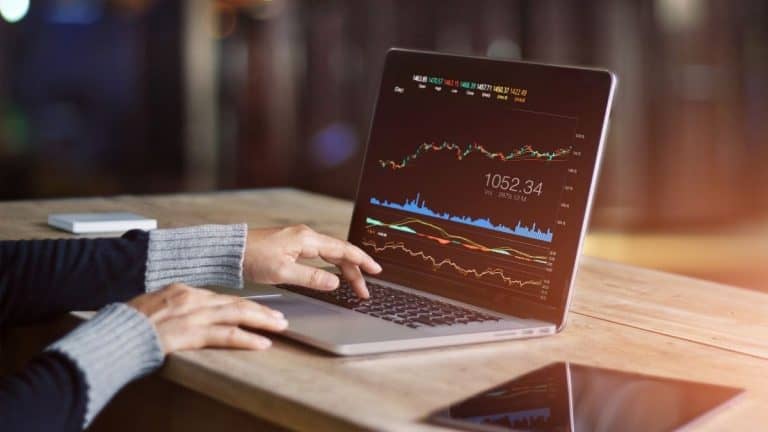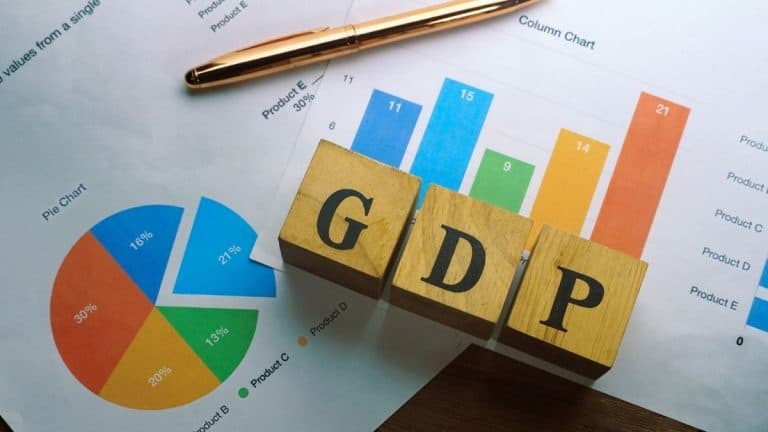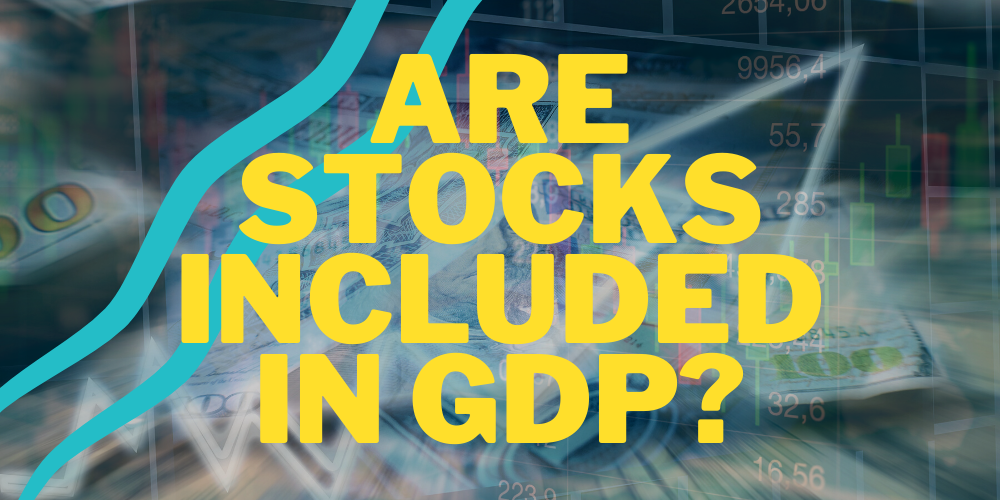This seems like a complicated question at first glance. To understand it, we must break it down into its two main terms: stocks and GDP (gross domestic product). From there, we can see how they interact with one another, and answer the question: Are stocks included in GDP?
What are stocks?
 Stocks are something we constantly hear in the daily lexicon. It’s nearly impossible to turn channels on the TV, or surf the web, without seeing something related to stocks.
Stocks are something we constantly hear in the daily lexicon. It’s nearly impossible to turn channels on the TV, or surf the web, without seeing something related to stocks.
Because of this, we rarely take a step back to understand what stocks are and how they have value.
In essence, stocks are units of ownership in a company. Other common terms are shares of equity or shares of stock.
Fiscally speaking, if you buy a stock in the imaginary company Matt’s Widgets, you are buying a piece of actual (albeit partial) ownership in that company.
Why do companies sell stocks?
One of the main concerns companies face is raising capital. Whether they are just starting out or already established and looking to expand their operations, they all need one thing: cold hard cash.
Due to capitalism and the competitive marketplace, companies usually funnel operating profits back into the company to build assets and scale operations. Large-scale expansions and projects, therefore, require large influxes of cash.
As opposed to taking high-interest loans, companies will sell shares of stock.
Not only do shareowners receive partial ownership in the company, but they will receive certain privileges as well, things like voting rights, shares of a companies profit (called dividends in financial jargon), and capital appreciation (basically when a stock’s value goes up so does the value of your shares).
Now that we’ve got an idea of what stocks are and how they have value let’s talk about GDP.
What is GDP?
GDP stands for Gross Domestic Product. As a number, it represents the total monetary or market value of all finished goods and services produced in a country, for a specific time frame.

In essence, it symbolizes the economic health of a nation. To put it even more simply, GDP measures the “output” of all goods and services in an economy.
What does GDP include?
GDP includes all private and public companies’ consumption, as well as government outlays (payments for contracts, appropriations, etc.), investments, additions to private inventories, paid-in construction costs, and the foreign balance of trade (net of exports minus imports).
Are Stocks Included In GDP?
After reading what GDP includes, it seems the investments portion would mean stocks are included in GDP, right? WRONG! Confusing? Let’s think it out. As mentioned earlier, when you buy a stock, you are buying a piece (or share) of a company’s ownership.
So, if you buy 100 shares of Matt’s Widgets, you are helping fund the company and gaining 100 shares of ownership in return, as well as the privileges we mentioned earlier (voting right, etc.).
The more shares, the more privileges you receive, and the more ownership of the company you have, the more value of the company you hold. However, the activity of buying the shares does not equal an output activity.
Your stock purchase doesn’t directly create (which must happen to be included in GDP) any goods or services.
Sure, the company may use the money you invested to create a billion widgets, and that would be included in GDP, but the stocks themselves only have value in the sense that Matt’s Widgets have value.
Matt’s Widgets, and the services and goods it provides, all count towards GDP, but the stocks do not.


 Tags:
Tags:










